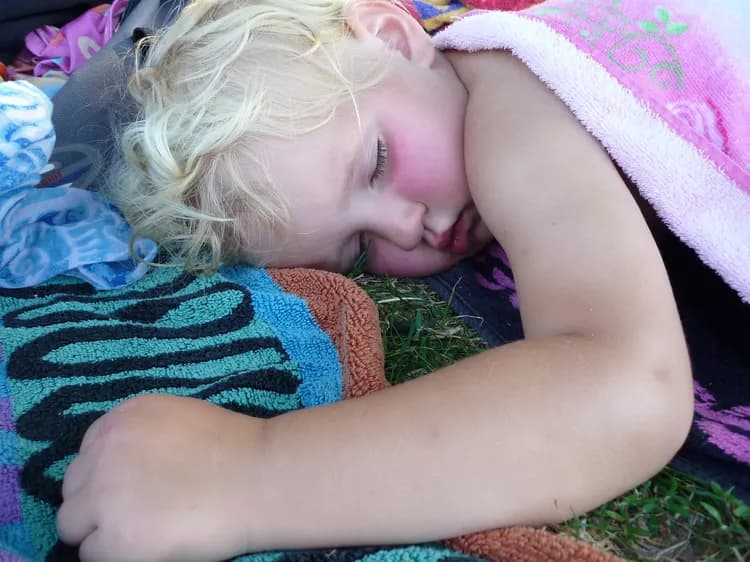
Sleep Disorders In Young Ones Affect Health And Well-Being
Sleeping disorders have been a major problem in the United States. According to the Centers for Disease Control and Prevention, approximately 70 million Americans suffer from long-term sleep problems. Unfortunately, sleep disorders in children get overlooked despite 25-40 percent experiencing some form of them.
- Newborns (0-3 months): 14-17 hours a day
- Infants (4-11 months): 12-15 hours
- Toddlers (1-2 years): 11-14 hours
- Preschoolers (3-5 years): 10-13 hours
- School-age (6-13 years): 9-11 hours
- Teenagers (14-17 years): 8-10 hours
The National Sleep Foundation reported that children aged 6-10 are only getting around 8.9 hours of sleep a night, 7.7 hours each night for 13-14-year-olds, and 7.1 hours for teens ages 15 through 17. Sleep deprivation can cause an array of biological and psychological problems.
Long-term sleep problems can lead to many health risks for the young including the following:
- Heart disease
- Heart attack
- Heart failure
- Irregular heartbeat
- High blood pressure
- Stroke
- Diabetes
Losing sleep can also make children gain weight. Staying up late can make children crave more high-fat, high-carbohydrate foods compared to sleeping on time. A 2011 study published in the BMJ suggested that children who do not sleep enough are at a 37 percent greater risk of being overweight than young ones who do sleep. Another study in the Journal of Pediatrics reported that children who sleep the least at ages 5-6 also had a 60-100 percent increased risk of being obese at age 15. This finding only occurred in that age group.
Youth is the most important time for growth. Nearly half of growth hormone secretion occurs during the later sleep stages of NREM (stage III and stage IV). Lack of sleep in children can result in reduced growth.Lack of sleep in children can result in reduced growth.
Sleep is also vital for the brain cells to connect more with each other. A growing network of brain cells is necessary for learning and memory. A 2014 study found that sleep after learning enhances connections between the brain cells. Lack of sleep can make children more forgetful.
Sleep deprivation drastically affects children’s moods. Over time, lack of sleep and sleep disorders can contribute to the symptoms of depression. In particular, insomnia, the inability to fall asleep or stay asleep, is the sleep disorder most often associated with depression. An alarming study published in
A study by researchers at McGill University and the Douglas Mental Health University Institute in Montreal found that a good night's sleep was connected to better performance in math and languages. In this study, 75 healthy children between the ages of 7 and 11 years had their sleep tracked. They found that children who scored higher on exams tend to be more sleep efficient. Sleep efficiency is a gauge of sleep quality that compares the amount of actual sleep time with the total time spent in bed.
Click here to see what parents can do to improve their children’s sleep quantity and quality.
References:
About Us. (2013, July 1). Retrieved March 20, 2015, from http://www.cdc.gov/sleep/about_us.htm
Bonuck, K., Chervin, R. D., & Howe, L. D. (2014). Sleep-disordered breathing, sleep duration, and childhood overweight: a longitudinal cohort study. The Journal of pediatricspediatrics.
Carter, P. J., Taylor, B. J., Williams, S. M., & Taylor, R. W. (2011). Longitudinal analysis of sleep in relation to BMI and body fat in children: the FLAME study.Bmj, 342.
Gruber, R., Somerville, G., Enros, P., Paquin, S., Kestler, M., & Gillies-Poitras, E. (2014). Sleep efficiency (but not sleep duration) of healthy school-age children is associated with grades in math and languages. Sleep medicinemedicine,15(12), 1517-1525.
Mehta, A., & Hindmarsh, P. C. (2002). The use of somatropin (recombinant growth hormone) in children of short stature. Pediatric Drugs, 4(1), 37-47.
Taylor, D. J., Lichstein, K. L., Durrence, H. H., Reidel, B. W., & Bush, A. J. (2005). Epidemiology of insomnia, depression, and anxiety. SLEEP-NEW YORK THEN WESTCHESTER-, 28(11), 1457.
Related Articles
Test Your Knowledge
Asked by users
Related Centers
Related Specialties
Related Physicians
Related Procedures
Related Resources
Join DoveHubs
and connect with fellow professionals

0 Comments
Please log in to post a comment.